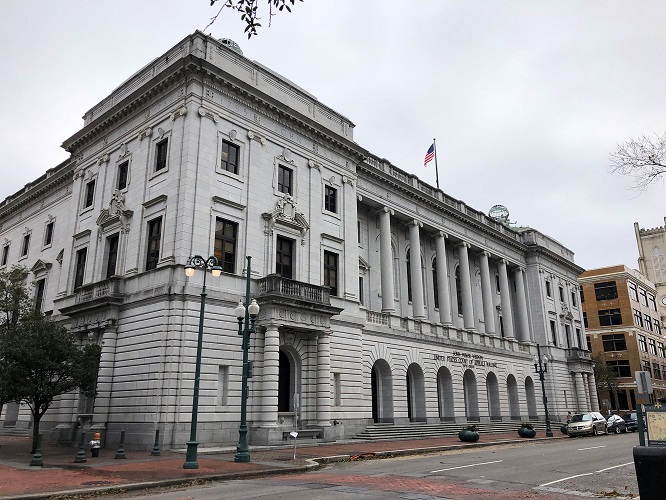The 5th U.S. Circuit Court of Appeals heard oral arguments Thursday over a lower court’s dismissal of a lawsuit against the North American Mission Board by a former executive of the Baptist Convention of Maryland/Delaware (BCMD).
The three-judge panel sharply questioned both sides as to whether and how First Amendment legal precedent protecting churches and religious organizations from state interference applied to the case.
Will McRaney, the BCMD’s former executive director, filed a lawsuit in 2017 alleging NAMB had intentionally defamed and wrongly influenced his 2015 termination by the BCMD after a dispute over collaborative missions efforts in the region. The suit also claimed NAMB had prevented or attempted to prevent him from speaking at conferences after his departure from the BCMD, and that he suffered emotional distress when his photo was displayed in the reception area of NAMB’s offices in Alpharetta, Ga.
Except to acknowledge the photo had been posted in the reception area of its headquarters, NAMB has consistently denied McRaney’s claims.
Last April, Senior Judge Glen Davidson of the U.S. District Court Northern District of Mississippi dismissed the lawsuit, ruling the court could not consider McRaney’s claims because of the ecclesiastical abstention doctrine, which prevents the government from interfering in church or religious matters. But McRaney’s counsel argued Thursday that the ecclesiastical abstention doctrine did not apply.
“NAMB is not a church,” attorney Harvey Barton argued. “They are an entity that controls money…. This is a dispute about power and money. It’s not about church doctrine. It’s about who gets to be in control.”
Representing NAMB, attorney Donna Jacobs of the firm Butler Snow argued that both sides agreed the initial conflict was over missions strategy. Jacobs said McRaney’s acknowledgment of that in his claims showed the dispute was “inherently religious.”
McRaney was the BCMD’s executive director from 2013 until he was terminated in June 2015. He filed suit in April 2017, after more than a year of online postings alleging various wrongdoing by NAMB and its president Kevin Ezell — including the claim, made in the lawsuit, that NAMB threatened to withhold money and to end a strategic partnership agreement for evangelism and church planting “unless McRaney was terminated.”
NAMB has consistently denied that claim, along with others. Its response to McRaney’s lawsuit claimed the BCMD had become “a dysfunctional and difficult ministry partner” while he was its executive director.
Barton, McRaney’s counsel, argued Thursday that McRaney had opposed NAMB’s desire for a new strategic partnership agreement with BCMD because it would have lessened BCMD’s autonomy.
After the hearing, McRaney told Baptist Press he “regret(ted) having to be here, but I certainly am glad for the opportunity to defend the historic Southern Baptist position.”
Jacobs told the judges that NAMB had never claimed to have any authority or hierarchical control over the BCMD. She agreed with Barton that the Southern Baptist Convention and its various entities and state conventions are autonomous rather than a top-down hierarchy like some other religious denominations, characterizing NAMB’s relationships and agreements with BCMD and other state conventions as “cooperative.”
When questioned by the judges about the SBC’s autonomous organizational structure, Jacobs argued that the differences from other denominations should not afford the SBC and its entities “lesser protection” from government interference in their religious affairs.
Jacobs also argued that McRaney’s claims that the dispute was over missions strategy showed the case concerned religious matters.
In a statement released after the hearing, George McCallum, NAMB’s legal counsel, reiterated Jacobs’ argument.
Source: Baptist Press
All Content & Images are provided by the acknowledged source



